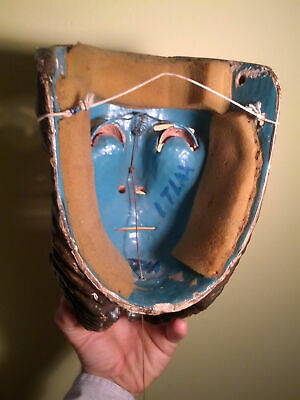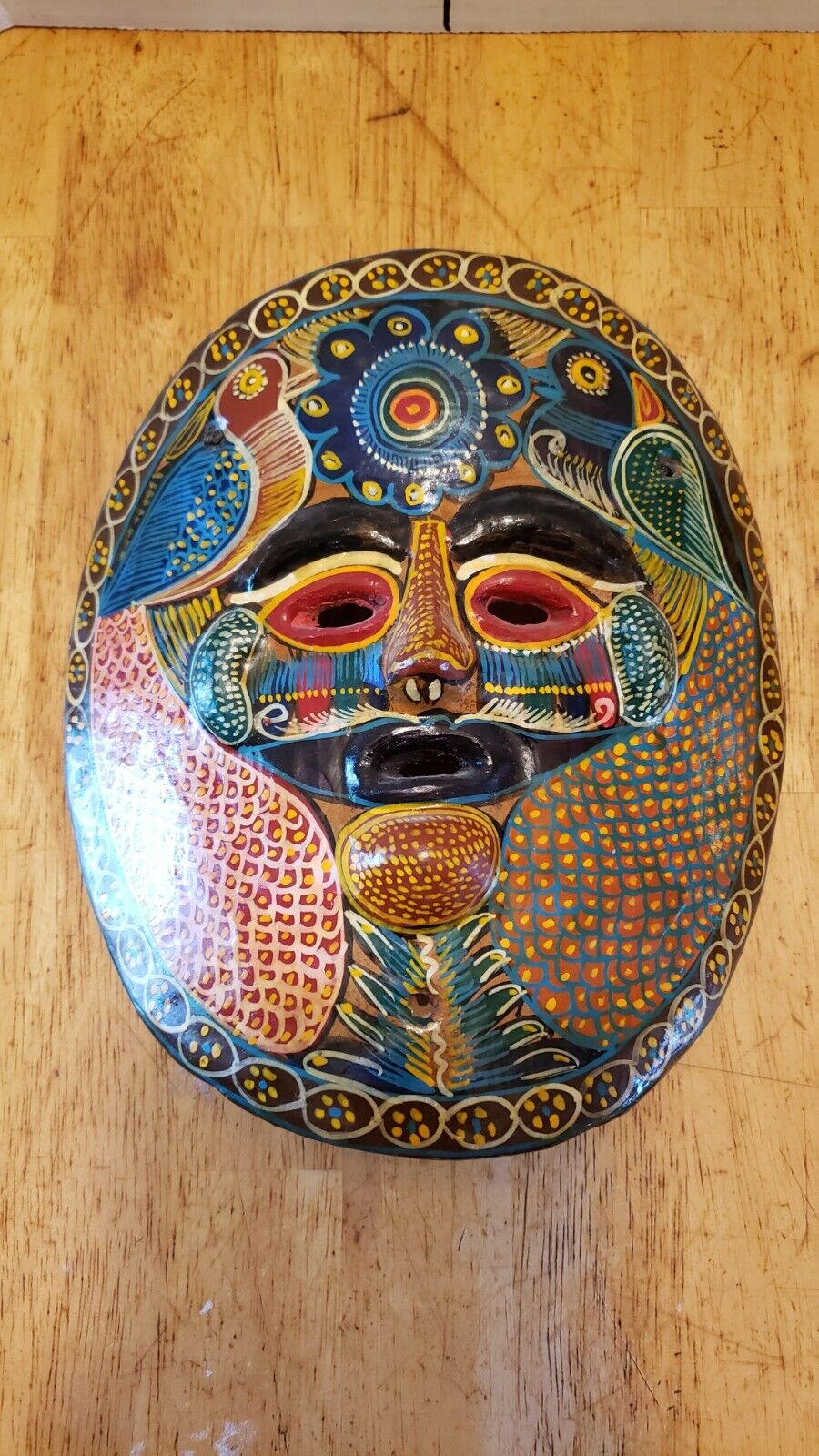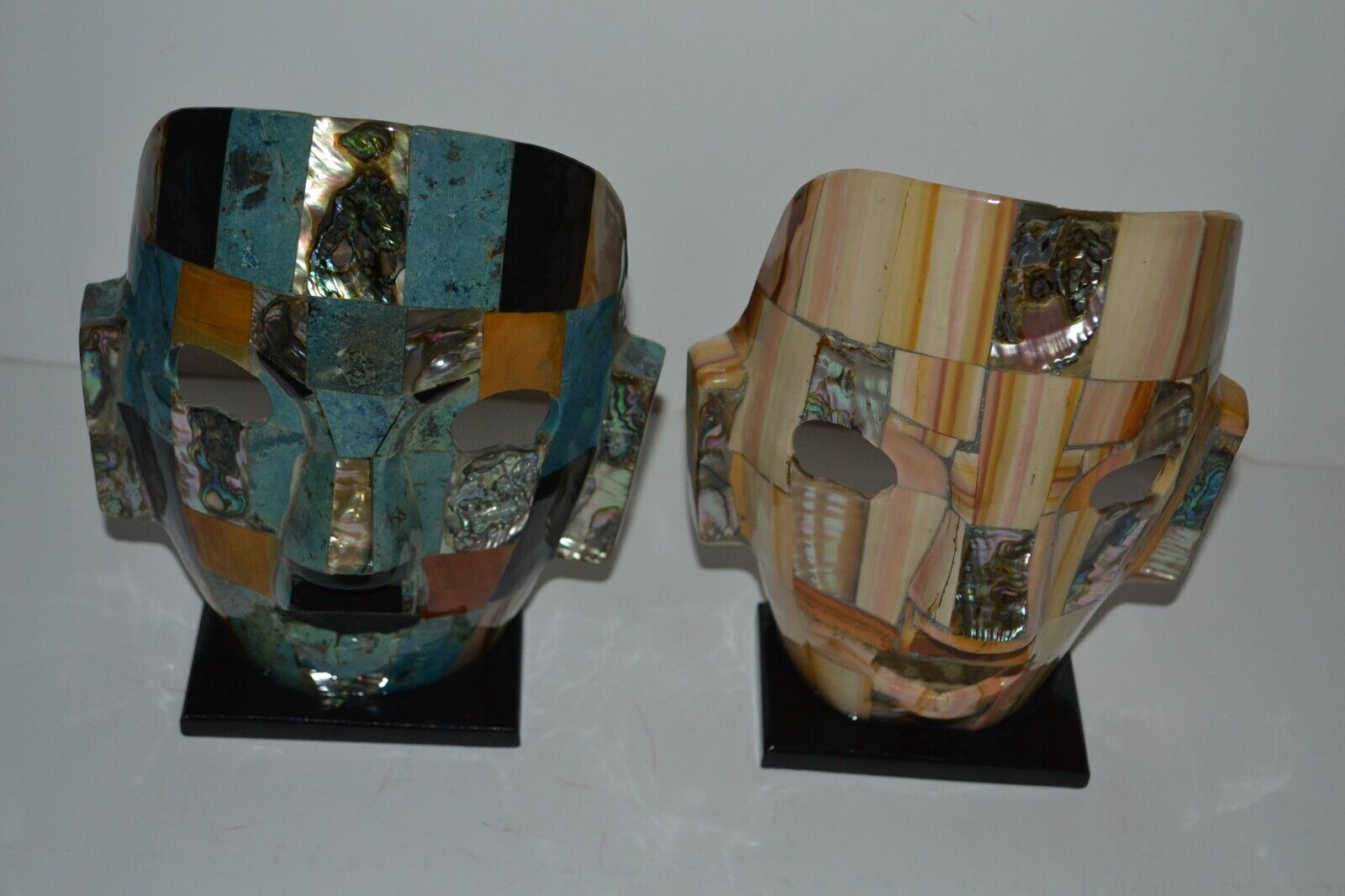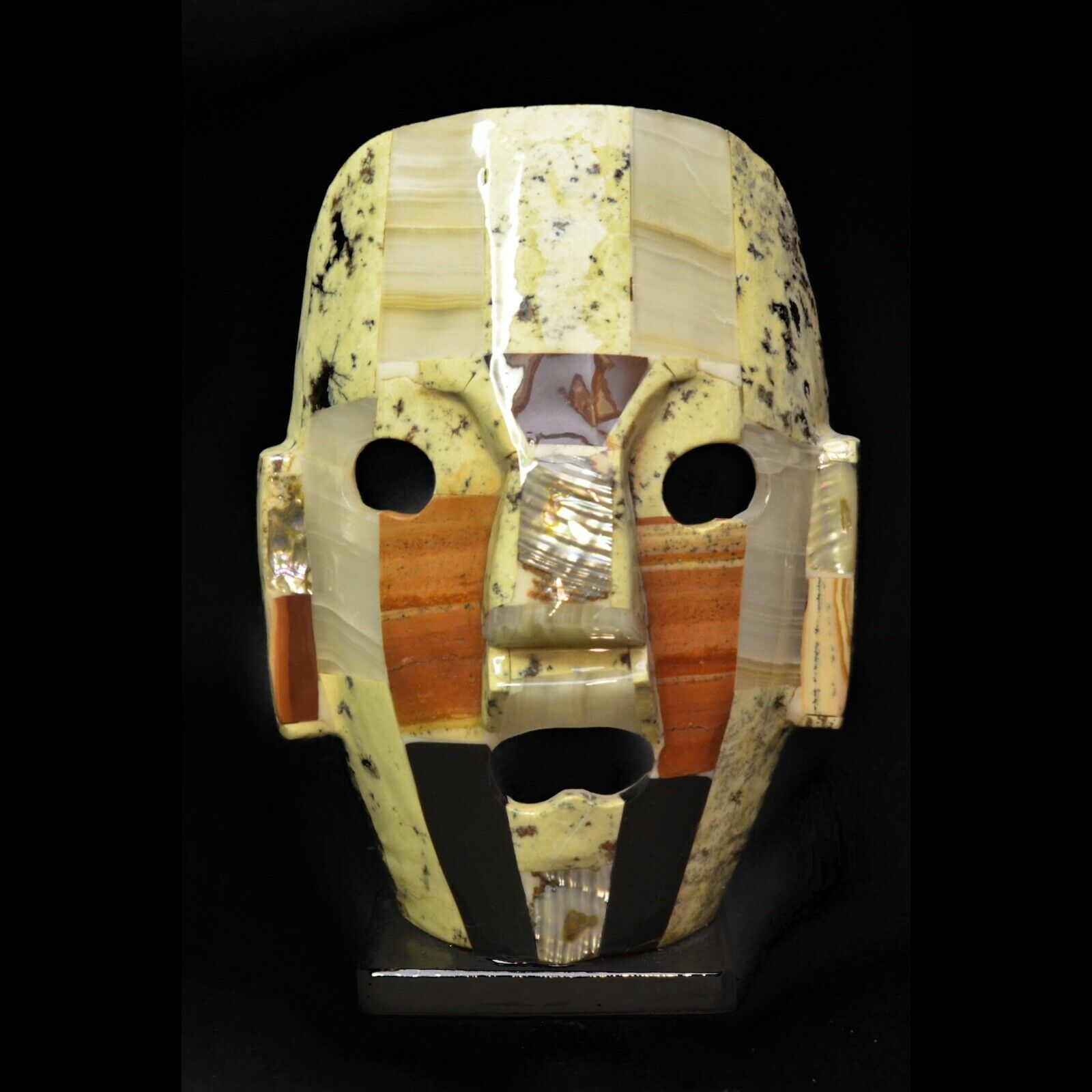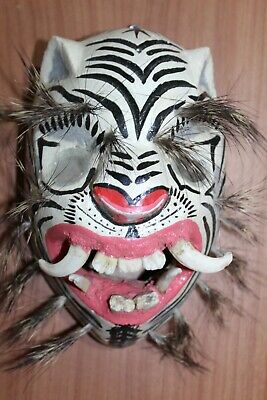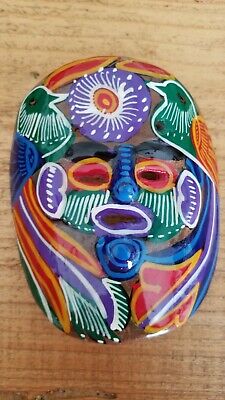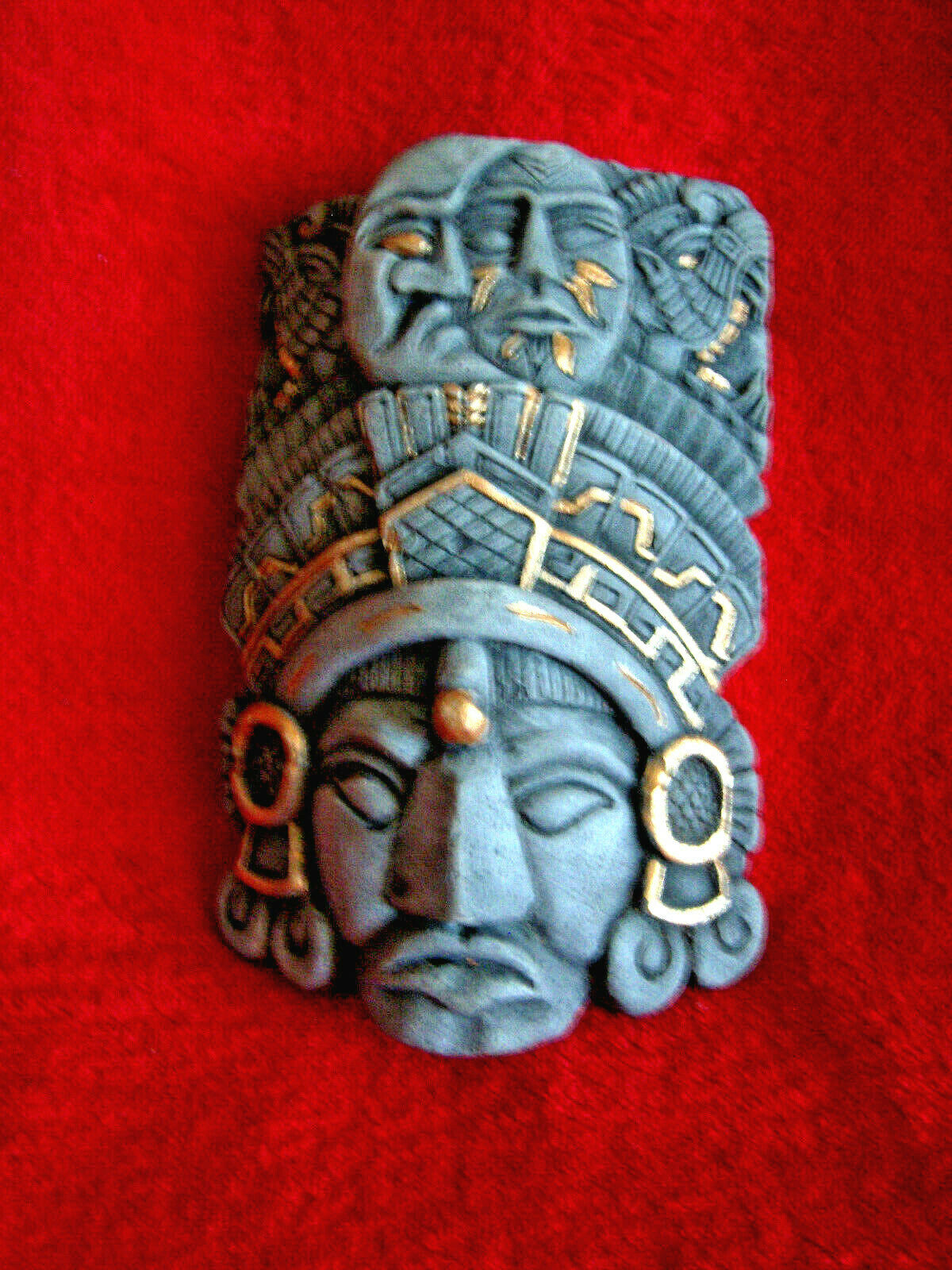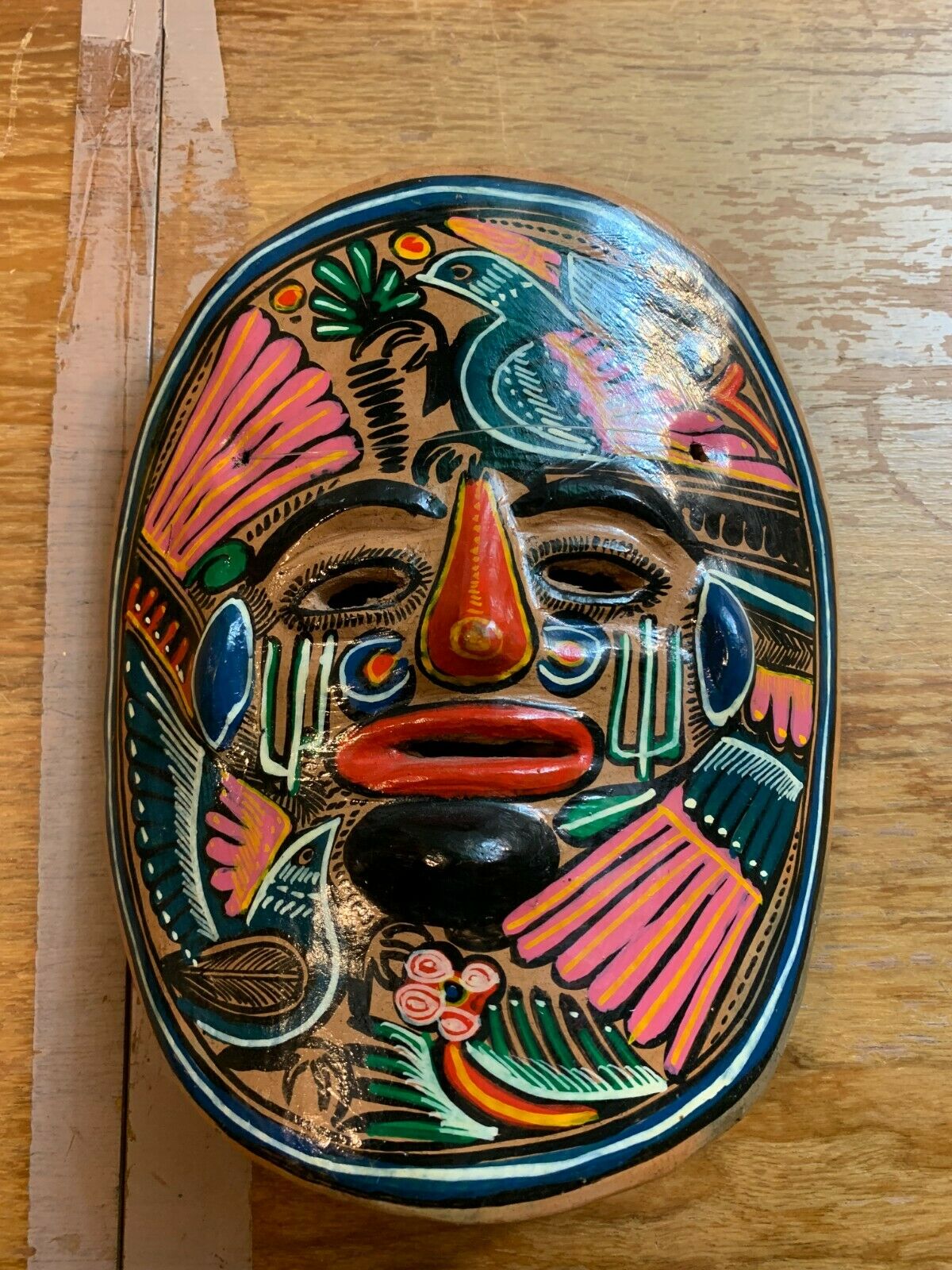-40%
Collection (3) Mexican Catrine (Dandy) Masks w/Glass Eyes Santero Reyes Acolizi
$ 5807.47
- Description
- Size Guide
Description
These are rare on their own... they are EXCEPTIONALLY rare as a set (*think holy-grail of mask-collecting... its taken me more than a decade to acquire all three...)e.g. The Harvard Museum of Natural Science has a, single, lessor, example on display.
These costly glass-eyed masks were carved by Santero carver Carlos Reyes Acolizi Studio: El Arte ~ Papalotla, Tlaxcola
Most Acolizi masks have the following characteristics:
Facial molds, silver-gold teeth, back painted in turquoise-blue paint.
Masks like this were hand-painted.
The catrín is a figure of ridicule dating back to colonization, when elaborately dressed Spaniards flaunted their wealth to the oppressed indigenous peoples.
Nahua and Otomi Indian villagers use them at their annual Carnival to poke fun at the wealthy Spanish landlords who settled in this region during the colonial era.
The catrín is the indigenous revenge, possible because the masks and costumes made it impossible to identify who was doing the lampooning.
When wearing a beard, they are sometimes called huehues, meaning “village elders.”
Sadly, modern versions of these masks are no longer so delicately carved (or just made of fiberglass resins) and are typically spray-painted or airbrushed, rarely include mechanical eyelids.
In many parts of Tlaxcala, the tradition of wearing such masks has given way to the wearing of mass-produced lucha libre (Mexican wrestler) masks.
Normal wear ~ showing many uses ~ back side also shows use Carnival of Tlaxcala
Its main characteristic is the color acquired by the localities, due to the costumes and masks that imitate the factions of the Spanish conquistadors, as well as the music and dances that flood the Carnival
Mask with a beard has foam padding inside the mask... attesting to its danced roots; The cordage is also heavily used.
The craftsmen of these masks is laborious, and examples such as this may takes months to complete.
The Catrine mask is danced in several ceremonial dances, the most popular - the 'Baile de los Catrines' (Dance of the Dandies) and also the Baile de los Paragueros (Dance of the Umbrella Salesmen.)
Craved by "Santeros" i.e. professional (religious) carvers that also carve religious statues
Region: Mexico
Origin: Tlaxcala
Ethnicity: Nahua
Ceremony: Carnival
Type: Catrín Maker by Carlos Reyes Acolizi
Age: 1960s-1970s
Materials: wood; oil-based paint; reverse-painted glass eyes
Calendar: Celebrated in multiple municipalities throughout the state from 7 to 12 February
Dimensions:
Mask without mechanical eyes: 6.5" T x 6" w x 5" d
Mask with mechanical eyes and beard: 9" T x 6" w x 5"D
Mask with mechanical eyes but not beard: 7" T x 6" w x 5" D
Its become increasingly dangerous to travel to this part of Mexico in recent years due to the drug activity in the region.
I package well and ship out daily!











